SU student’s nonprofit delivers food essentials to Kenya
SU student’s nonprofit delivers food essentials to Kenya
Founded by Abdul Rahman Abdi, a refugee who came to Syracuse, Sadaqa Foundation Inc. provides food to communities in Kenya.
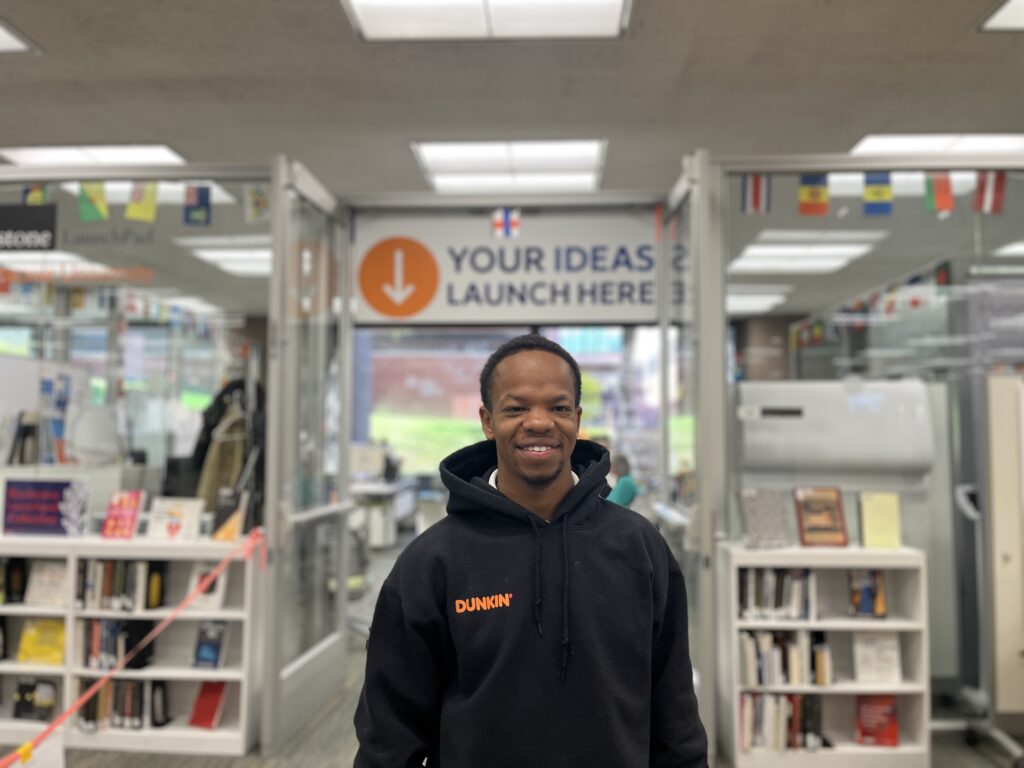
Five days a week, Rashid Saman Aden Kulow walks through the camps in the Dadaab refugee complex in Kenya. He sees men sitting idle outside their homes with no work, elderly men begging and children skinny and frail from hunger. He constantly overhears people discussing funding cuts, expressing frustration about aid organizations that make promises but fail to deliver.
International aid that once sustained the camp was drastically cut, leaving more than 430,000 refugees struggling to meet their most basic needs: daily meals and clean water.
“Most of them (tell) me the only challenge they’re facing is food, water and nutrition,” said Kulow, 24, who has lived in the “Ifo 2” camp at Dadaab since 2011 after relocating from Somalia for better education opportunities.
“So, people are (under) a lot of stress, a lot of mental stress and physical stress in the camp,” he said.
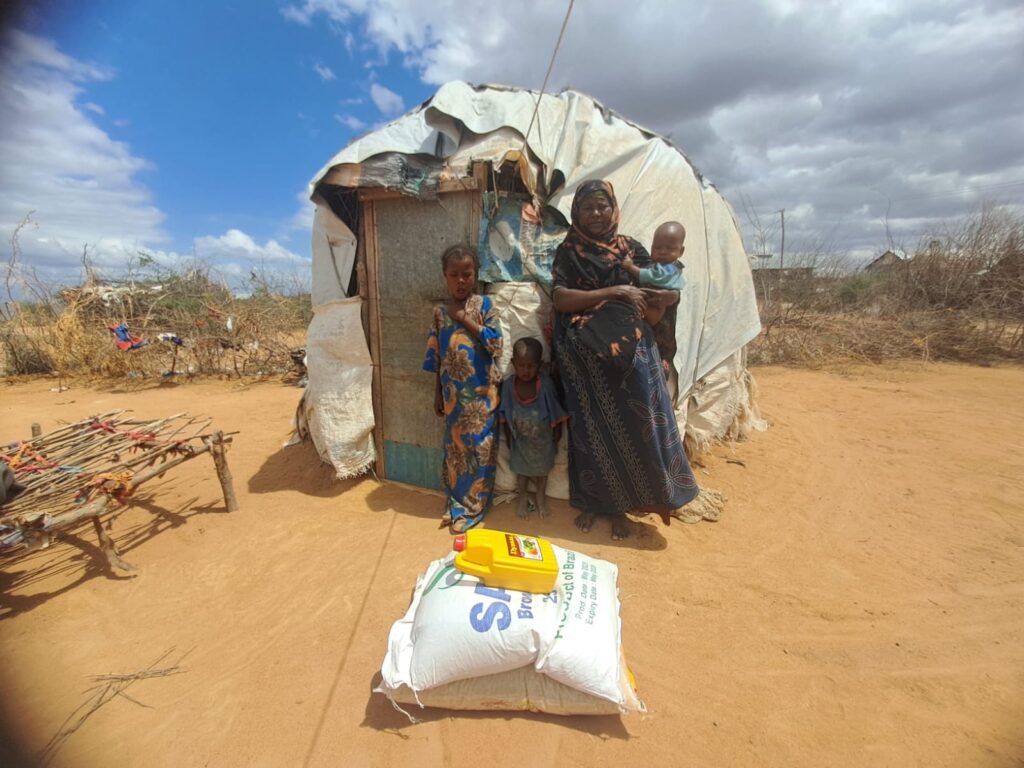
Dadaab, established in 1991, now contains than half of Kenya’s total refugee population according to the UN Refugee Agency, also known as UNHCR. The majority of residents are from Somalia, and more than three-quarters are women and children. The original camps, Dagahaley, Ifo and Hagadera have become overcrowded, prompting the development of “Ifo 2” to accommodate increasing numbers of arrivals according to UNHCR.
As a community outreach employee with the Danish Refugee Council, Kulow meets regularly with families who inform him of their most urgent needs. Jobs are scarce, high school graduates face unemployment and students struggle under the new unaffordable education system. Access to health care is just as limited as the medication supply is short and people are forced to wait for ambulances that never arrive.
The information Kulow gathers from families in “Ifo 2” informs African American studies and citizenship and civic engagement senior Abdul Rahman Abdi, 21, whose nonprofit, Sadaqa Foundation Inc., raises money in Central New York for Dadaab. There, Kulow and other volunteers distribute staples like flour, sugar and cooking oil to orphans, single mothers and families in need.
Abdi and Kulow coordinate distributions almost daily. Since launching in 2023, the foundation has expanded into a 501(c)(3) nonprofit. Abdi estimates the nonprofit has assisted nearly 100 families so far. Depending on the funding received for the week, Abdi sends it out to Kulow.
“The funding is based on how much we are getting from donations and if we have a certain amount we send it out weekly to help those in need,” Abdi said.
Data analytics senior Schneider Joachim, a friend of Abdi’s, donated $70 to the organization last June during Eid al-Adha. His donation, pooled with others, helped purchase three goats that fed more than 50 families.
The day after donating, Joachim received a video and images from Abdi showing the goat meat being distributed to families.
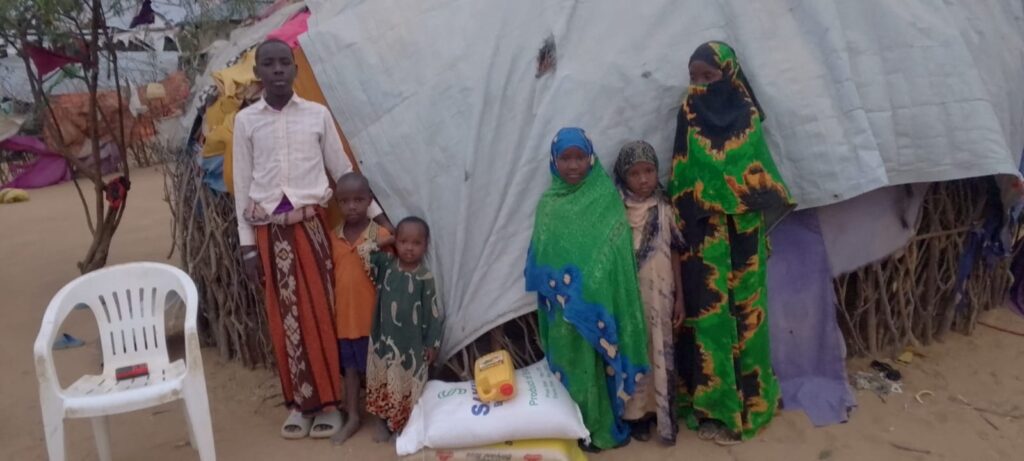
“I’ve seen the impact because I participated,” Joachim said. “He gives you actual video proof of what they do as well. You know your money is going towards a good cause. You see how you impact these families.”
Joachim said he was surprised, in a good way, when Abdi told him he started a nonprofit.
“He’s always been ambitious. He always wants to help the community. It does make sense that he went with the nonprofit route,” Joachim said. “To see Abdi, who is around my age, being able to put his foot down and create an organization that’s making a real impact and being the head of that and making sure the logistics and the operations are successful. I mean, I can only give my hats off to them.”
Seeing Abdi’s success has made Joachim reflect on his own ambitions.
“Am I doing the things I say I want to do? Am I taking the proper steps to make those a reality? Or am I just stuck in, you know, talking to myself about it?” Joachim said.
Abdi resettled with his family from Somalia at the age of two. Growing up in Syracuse’s Somali community, he remembers neighbors and local organizations providing support during his family’s early years. That sense of community shaped his decision to first launch the Sadaqa Foundation in 2023 as a small Ramadan initiative.
“We like to help people and these are all our passions too,” Abdi said. “Ramadan is a month of giving, the month of charity for us islamically. I thought, let’s start a charity business. Let’s just start small.”
He developed his nonprofit at Syracuse University’s Blackstone LaunchPad, the innovation hub in Bird Library, where students test business ideas and receive mentorship.
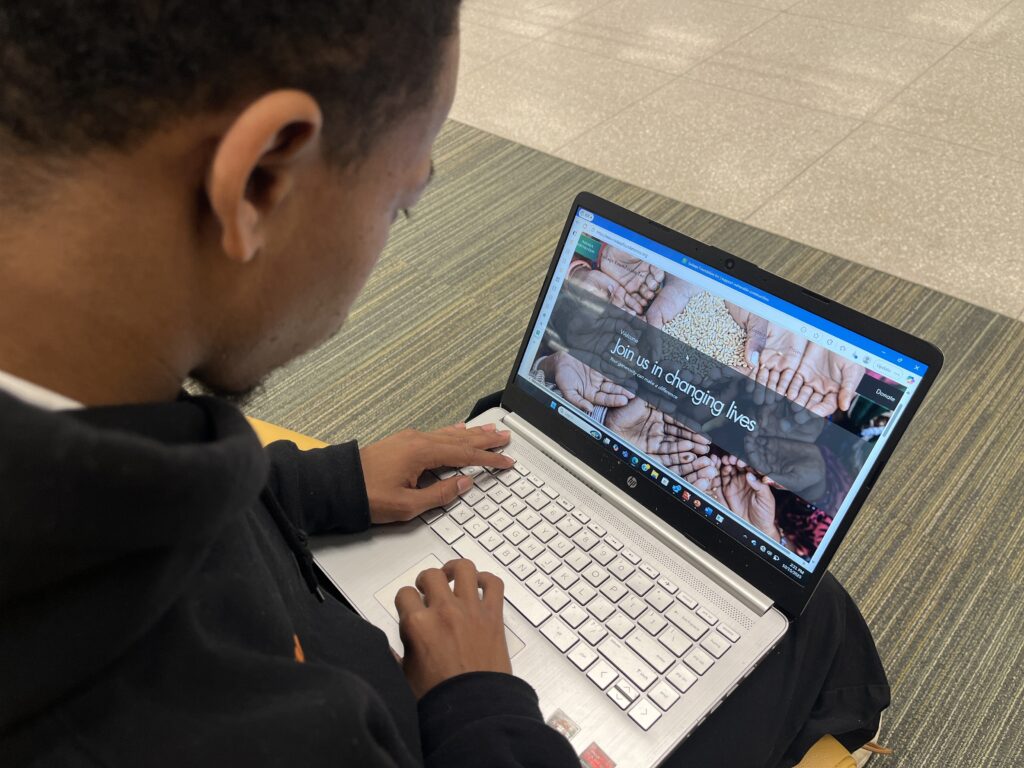
Abdi had already launched the Sadaqa Foundation with help from his father, who runs his own nonprofit, but he came to the LaunchPad last semester seeking guidance on how to grow the organization. LaunchPad director Traci Geisler worked with him on a business model canvas, a tool that helped him identify a core problem and sketch out potential funding sources.
“We were actually all over the place,” Abdi said. “We were focused on the right thing, but we weren’t focusing on one thing.”
The business model canvas helped him narrow his focus to food insecurity among children in Dadaab, which was crucial when pitching at LaunchPad competitions like IdeaFest. Though he hasn’t won yet, refining his pitch and business strategy is still vital, he said.
“Without the business model canvas, I wouldn’t even know where we would be going,” Abdi said. “It’s like a roadmap.”
Geisler said refugee and immigrant students like Abdi bring a unique entrepreneurial approach shaped by their lived experience.
“I think (immigrant students) have developed a skill set of being resourceful, incredibly resourceful and making and bringing a fresh perspective based on their culture to new ideas that people here in this culture may not have recognized as a potential area to develop a business,” Geisler said.
Joachim is also using the LaunchPad for his own business venture. He has participated in pitch competitions and has used Blackstone LaunchPad resources since 2022.
“A lot of people in the world do want to do something. They just don’t know how to approach it, where to start,” Joachim said. “Having the space that is Blackstone to connect with like minds, I feel like that would motivate others to pursue what they want to pursue as well and not get stuck and they move where you’re just saying you want to but you actually start taking action.”
He describes Geisler as a supportive mentor who helped him even through his business pivots, helping him extract lessons before moving forward.
“They’re really there to just act as a support person for you and they really excel at that,” Joachim said.
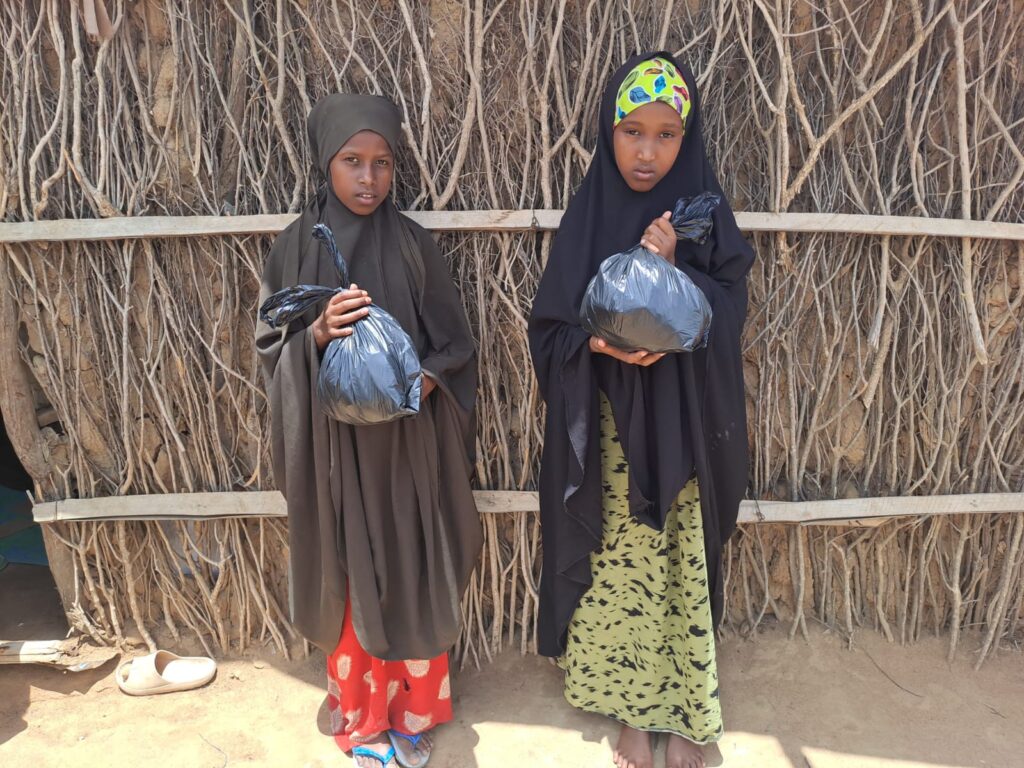
Last summer, Abdi returned to Kenya and visited Dadaab. In Ifo 2, he saw children battling sickness and fevers, families making long distances for water and others living in tents, some without doors. For him, the visit was both personal and sobering.
Back in Syracuse, the weight of Dadaab stays with him. He remembers how families fled Somalia for Kenya to escape famine, drought and civil war, only to face new struggles once inside the camp.
“These people need our help,” Abdi said.
For Kulow, that need drives his work inside the camp. “I’m doing this job voluntarily,” he said, “to support people in need and make their lives better.”
